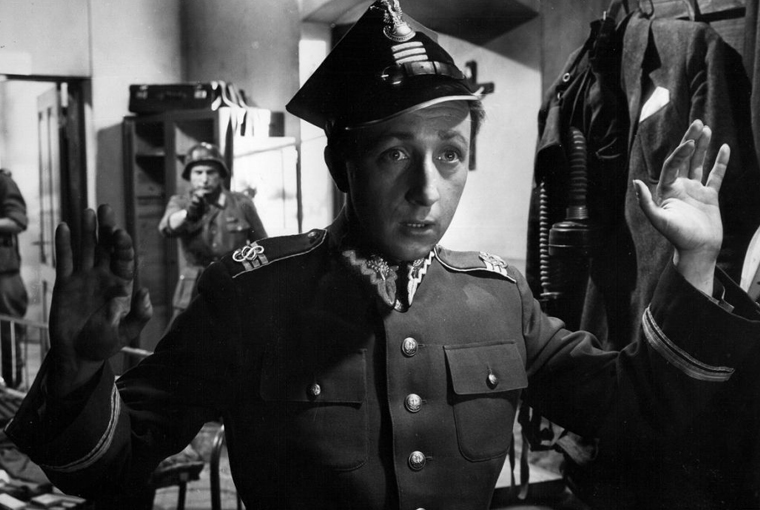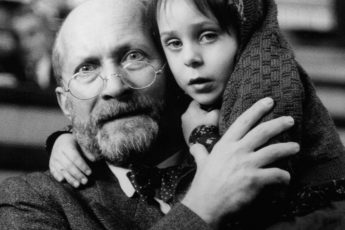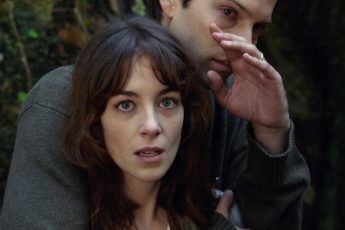On Not Being Able to Laugh
Andrzej Munk’s Bad Luck (Zezowate szczęście, 1960)
Vol. 45 (September 2014) by Konstanty Kuzma
Bad Luck is indisputably a classic of Polish film history. Admired by filmmakers and historians alike, the film – shot in 1959 – has inspired vivid, ongoing discussions on what director Andrzej Munk and his work have to say about Polish history and human psychology. That is mainly because the script touches on various eras in Poland’s past without forgetting the bigger picture beyond cultural and historical contingencies – a silent credo of the Polish film school. Bad Luck tells the story of Jan Piszcyzk, a man whose fate is allied with misfortune so closely that the only place he ends up feeling safe at is prison (for an extensive review of the film, see Julia Zelman’s piece for this journal). The main plot, narrated by Piszczyk himself, consists of a series of flashbacks in which the protagonist recounts his unfortunate personal history in order to convince his ward not to set him free: “Only here have I begun to feel like a normal person,” Piszczyk insists. This background story, which constitutes only 5 out of 108 minutes of running time, is virtually the only sequence not intended to amuse, which has given rise to discussions about the appropriateness of humor in Munk’s work (nominally a “dark comedy”) – should we laugh at Piszczyk’s horrible fortune? Some, like the novelist Maria Dąbrowska, appreciated the film’s Chaplinesque elements, arguing in favor of the film’s ultimately humanistic message. Others, notably the critic Andrzej Kijowski, found Piszczyk’s double role of hero and laughing stock to be contradictory regardless of Munk’s factual stance on his story.
I for one have trouble joining this discussion because I have trouble acknowledging that Bad Luck is in fact funny. It is not that I wish to dispute that Munk intended the film to be funny, let alone question that people really do find it amusing. An array of jokes – whether situational or not – are perfectly clear to me. I know both what many of them are and why I should find them funny (take the more-than-explicit slapstick sequences). It’s just that I don’t. I watched the film – for the first time – without being any more amused than I am when going through a newspaper. More interestingly, I didn’t find this bothersome – the film was perfectly entertaining and engaging to me, so that my failure to laugh didn’t render the absurdity of the narrative perturbing or hyperbolic. Bad Luck seemed to me like a film fulfilling all the criteria of a great comedy save the funniness, which inevitably leads to the question whether one has to find a comedy funny in order to find it great.
Note that this is different from the question whether comedies must be funny in order to qualify as comedies, which I ultimately take to be a matter of definition1. Paradigmatically, they probably do have to be funny to be called comedies, though we might be able to find some exceptions to this rule. In this particular case, though, the consensus is indeed that Bad Luck is funny when I don’t find it funny without simultaneously disputing its quality. This is quite like David Foster Wallace attempting to convince his students that Kafka is funny2 – he sets out to remove an epistemic deficit, but realizes that what appears to be keeping his students from appreciating Kafka’s humor is simply a cultural context which doesn’t license the kind of humor evoked by Kafka’s literary works. Showing them what is supposed to be funny isn’t sufficient for them to actually find Kafka funny3. The question Wallace doesn’t pursue is what that means for the student. Is the student’s Kafka different from Wallace’s Kafka?
Not per se. The reason why I find Bad Luck instructive in this respect is that emotional ambiguity is built into the film. It is Piszczyk who narrates the story of the film, the person arguably most unfit to recognize its humor. Surely, the story he is reconstructing isn’t funny to him. It’s just that his role in the story, which is essentially to be at odds with his environment, is one that can be recounted in both tragic and comic vocabulary (this structural proximity is perhaps one reason one hears the sentence “I don’t know whether to laugh or cry” so often). Not only that, Munk endorses both comic and tragic intuitions so that presumably, when one reaches the end after having laughed a lot at Piszczyk one feels alienated for having done just that (in other words, the film’s aftertaste is reinforced by being led into an emotionally diachronic position). In my case, my subjective feeling of humor has withheld that didactic epiphany from me. But it has helped me recognize how a comedy can not only be interpreted or understood in a sad way, but experienced that way. This is possible without the now seemingly obsolete comic instruments being in the way of your enjoyment because these comic instruments in actuality do much more than entertain. Munk constructs his comic universe with such virtuosity one does not feel compelled to find it funny. This is just why you may admire Nosferatu without finding it eerie.
Humor is dispositional to some degree. There is no reason to divert your intuitions away from a bereaved mindset when the artistic world you are entering continues to tolerate that mindset. Kafka can be funny, but he won’t normally remind you that you want to be laughing at any particular character or setting4 – if you didn’t on the first three occurrences, you’re quite unlikely to do so during the fourth one. When Munk uses humor in Bad Luck, it is still not in a way which forces you to laugh, because a) the story is being told by a guy who is so miserable that one has no trouble identifying with him, and b) at some point this identification will reach a point where humor will happen to feel inappropriate. Like myself, you may even recognize that the author is trying to make you laugh, find his jokes ethical and his style admirable and still remain both solemn and enchanted by the film. And that goes both ways. Many enthused readers of Infinite Jest found the book funny even though that contradicted Wallace’s intention.
My point is that it is not inappropriate/wrong/off-key to laugh at Infinite Jest or to not laugh at Kafka or Munk. Firstly, there are structural parallels in comedy and tragedy that make both of these attitudes compatible with the stories of Kafka, Munk and Wallace. Secondly, and more importantly, whether you were laughing or crying, nothing prevents you from approaching the poignancy and big picture that should dawn upon you after you’ve gone through those works. This is both why it is so difficult to unlearn finding Kafka just earnest. And why you can love Kafka without ever having laughed with him.




Leave a Comment